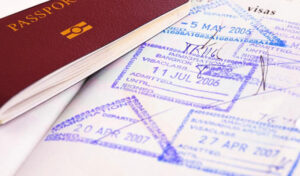Disputes can arise over a variety of issues, including working conditions and wages. Maintaining open communication channels and implementing mediation can help avoid conflict. Compliance with labor laws is essential to avoiding legal liability.
In addition, it is critical to properly classify employees, as misclassification can result in severance payments or fines.
Employees’ Rights to Form Unions
As one of the world’s largest exporters of manufactured goods, Thailand has a lot at stake when it comes to labor standards. However, workers in the country face many obstacles when it comes to forming unions and seeking justice from employers for labor-related issues.
The most significant obstacle is the fear of being dismissed if employers find out about a worker’s intention to join a union. This is why it’s crucial for workers to seek legal counsel and have a strong support network when organizing unions.
Trade unions help prevent forced labor in two ways: they establish a more equal balance of power between employees and employers, eliminating a core driver of the problem; and they transform working conditions to prevent deceptive, coercive, and exploitative practices from arising in the first place. Unfortunately, the vast majority of Thai workers do not have full rights to freedom of association and collective bargaining guaranteed under law.
The CILT-affiliated PTTLU has long campaigned for Thailand to ratify ILO Conventions 87 and 98, which guarantee the right of workers to form unions and negotiate with their employer. In addition, the organization has recently filed a series of complaints with the ILO Committee on Freedom of Association on violations of these fundamental worker rights. As a founding member of the ILO, it is well within Thailand’s obligations to take steps to afford these internationally recognized worker rights.
Employers’ Obligations to Employees
Under Thai labor laws, employers are required to provide employees with a host of benefits. These include contributions to the Social Security Fund, severance pay, and work compensation for holiday hours. Furthermore, all workers—regardless of their employment status or contract terms—are entitled to basic statutory wages and the minimum working hours specified by the law.
Employers are also obligated to inform employees of their rights and provide written notifications before terminating them. This includes a probationary period that can last up to 120 days. Additionally, if an employer decides to terminate employees before the end of their probationary period, they must provide at least one full pay period of advance notice.
Moreover, workers are able to report employer violations via the ministry hotline and file cases with labor courts for grievance resolution. In addition, many service providers and organizations specialize in labor rights and can offer support to employees if needed.
For companies looking to establish long-term success in Thailand, understanding and aligning with the country’s labor laws is paramount. Failure to do so can not only result in fines and penalties but can tarnish an organization’s reputation, making it difficult to attract future talent and clients. To avoid these risks, specialized legal professionals can assist both employers and employees with the nuances of Thailand’s employment regulations.
Dispute Resolution Options
There are several Thailand dispute resolution options for parties in a labor dispute. One method is to consult with a lawyer who understands Thai labor laws and can provide guidance and represent the client in negotiations or court proceedings. A good law firm can also help a client draft an arbitration clause to ensure that any arbitration conducted under the terms of a contract takes place in the place where the case is being heard and in the language spoken by the disputing parties.
A non-adversarial method of resolving disputes is mediation, which has been embraced by the Thai judicial system to reduce backlogs and improve access to justice. In some cases, such as in labor disputes and family and juvenile cases, a court may require parties to attend mediation before proceeding to trial. Increasingly, courts are also requiring mediation for general civil cases even when it is not legally mandated.
Arbitration proceedings take place in a private setting and are often less formal than a court proceeding with its strict juridical protocols. Moreover, all information, evidences, statements, and arguments brought up in a mediation can be kept confidential, which is especially helpful for high-profile individuals, businesses, or organizations that wish to maintain their reputations. The process of resolving a dispute by way of mediation can be much faster than going to court.
Labor Courts
Labor disputes in Thailand occur for a number of reasons, including wrongful termination, discrimination, and noncompliance with wage regulations. By understanding the country’s labor laws and resolving disputes in a timely manner, employers can avoid unnecessary legal liability and maintain positive work environments for their employees.
Trade unions are legally recognized in Thailand, and workers have the right to join them. However, unionization remains low in the country due to anti-union resistance from employers and the absence of strong enforcement of worker rights. Regardless, workers have several options for dispute resolution, including seeking assistance from service providers and organizations that specialize in worker rights and advocacy.
If a dispute cannot be resolved internally through the company’s grievance procedure, it may be escalated to the Ministry of Labor or the Labor Courts. Labor courts are designed to adjudicate employment-related issues in a streamlined and expedited manner. Understanding these procedures and staying updated on the latest changes can help ensure that all terminations adhere to strict Thai labor laws and are handled fairly for both parties.
Aside from ensuring that workers have access to adequate compensation, employers in the country must also pay social security contributions. This fund provides support in the event of sickness, injury, death, childbirth, unemployment, and other unforeseen circumstances. In addition, employers must compensate employees for working on public holidays and provide overtime wages. The government has recently intensified inspections to ensure compliance with these labor laws.
Related posts:










